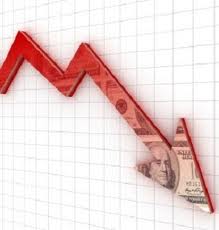U.S. 10-year Treasury yields will hit 1 percent by the end of the year, as the so-called “fiscal cliff” has investors running to the safety of government debt, several market watchers told CNBC on Monday.
(CNBC) -- U.S. 10-year Treasury yields will hit 1 percent by the end of the year, as the so-called “fiscal cliff” has investors running to the safety of government debt, several market watchers told CNBC on Monday.
Gerard Minack, Asset Manager at Morgan Stanley, got the bearish ball rolling on CNBC Asia’s “Squawk Box.” He said investor anxiety about the tax increases and spending cuts which will happen at the start of next year, could be the catalyst for a U.S. recession and a fresh plunge in yields.
“We know exactly when the next U.S. recession is going to start. It'll start January 1, 2013,” said Minack. “We see a very small window from the first Tuesday in November (election day) to December 31 to sort that mess out. It's going to make last year's debt ceiling debate look like a walk in the park.”
The debt-ceiling debate was a major risk event in the U.S. last year which triggered a plunge in stock markets. The crisis was eventually resolved through a complex deal where the Congress agreed to raise the debt ceiling and reduce proposed increases to future government spending.
Nick Maroutsos, Portfolio Manager at Kapstream, agrees with Minack, saying the 10-year Treasurys could “absolutely” hit 1 percent by the time we ring in the New Year. “Government officials are dragging their feet in Europe and the U.S. economy is slowing down, so the likelihood of hitting 1 percent is certainly out there,” said Maroutsos, who recently sold out of government bonds completely in favor of highly-rated corporate debt.




